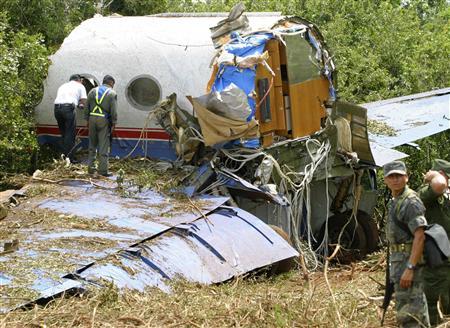Originally posted by wessongroup
| Quote: | Originally posted by monoloco
All the laws and enforcement in the world will not keep people from getting high. Last week I went to a lumber yard in La Paz, I noticed a man who
looked to be in his sixties buying a small can of Resistol, when I left he was outside with a rag over his face sniffing it. It is an exercise in
futility to attempt to control drugs with prohibition, we have been trying to do that for a hundred years and the problem is worse than ever, the
ineffectiveness is evidenced by the price on the street. The only sane way forward is legalization and the treatment of drug abuse as a medical
problem. |
Agree overall ... first, as it is my right to stick a rag with glue to my nose and inhale, IF I CHOOSE to do it... it is my right to do what I want
with my body ....
Second, the government has no right to be on MY property, (well of course I'm NOB) based on the Constitution of the United States... AS LONG AS I'M
ONLY HURTING MYSELF...
Thirdly, Governments control the production of these "drugs" e.i the movement of production of smack from the "Golden Triangle" to Afganistan...
A four-year investigation concluded that Burma's national company Myanma Oil and Gas Enterprise (MOGE) was "the main channel for laundering the
revenues of heroin produced and exported under the control of the Burmese army." In a business deal signed with the French oil giant Total in 1992,
and later joined by Unocal, MOGE received a payment of $15 million. "Despite the fact that MOGE has no assets besides the limited installments of its
foreign partners and makes no profit, and that the Burmese state never had the capacity to allocate any currency credit to MOGE, the Singapore bank
accounts of this company have seen the transfer of hundreds of millions of US dollars," reports François Casanier. According to a confidential MOGE
file reviewed by the investigators, funds exceeding $60 million and originating from Myanmar's most renowned drug lord, Khun Sa, were channeled
through the company. "Drug money is irrigating every economic activity in Burma, and big foreign partners are also seen by the SLORC as big shields
for money laundering."[5] Banks in Rangoon offered money laundering for a 40% commission.[6]
The main player in the country's drug market is the United Wa State Army, ethnic fighters who control areas along the country's eastern border with
Thailand, part of the infamous Golden Triangle. The UWSA, an ally of Myanmar's ruling military junta, was once the militant arm of the Beijing-backed
Burmese Communist Party.
Poppy cultivation in the country decreased more than 80 percent from 1998 to 2006 following an eradication campaign in the Golden Triangle. Officials
with the United Nations Office of Drugs and Crime say opium poppy farming is now expanding. The number of hectares used to grow the crops increased
29% in 2007. A United Nations report cites corruption, poverty and a lack of government control as causes for the jump.[7] |











 your too good .... keep it up.. enjoy your posts so much...
your too good .... keep it up.. enjoy your posts so much...


 Just cut out all the BS and
legalise pot.
Just cut out all the BS and
legalise pot.